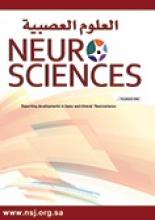Abstract
Lacosamide (LCM) is a newer antiepileptic drug with a dual mode of action. It selectively enhances slow inactivation of voltage-gated sodium channels without affecting fast inactivation, and modulates collapsing response mediator protein 2 (CRMP-2). It has a high oral bioavailability of approximately 100%. It has shown potent and broad neuroprotective effects in vitro and in vivo animal models making it a potential candidate for long term treatment of epilepsy. In addition to this, it has demonstrated analgesic activity in various animal models. Apart from this, LCM has demonstrated potent effects in animal models for a variety of CNS disorders like schizophrenia and stress induced anxiety. Various safety pharmacology and toxicology studies have shown that LCM is well tolerated. Clinical trials have also suggested that LCM is a safe, effective, and well tolerated adjunctive treatment for reduction of seizure frequency in patients with highly refractory, partial seizures. Other potential indications of LCM are being investigated.
- Copyright: © Neurosciences
Neurosciences is an Open Access journal and articles published are distributed under the terms of the Creative Commons Attribution-NonCommercial License (CC BY-NC). Readers may copy, distribute, and display the work for non-commercial purposes with the proper citation of the original work.






